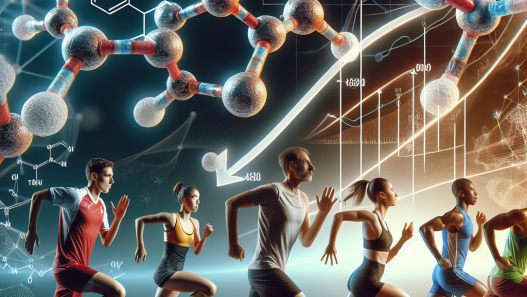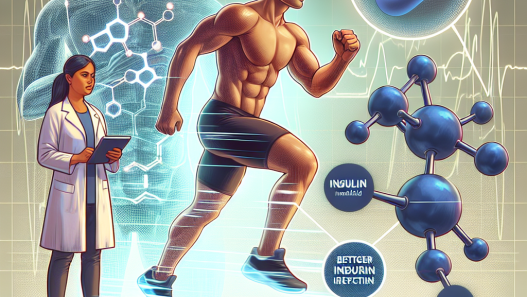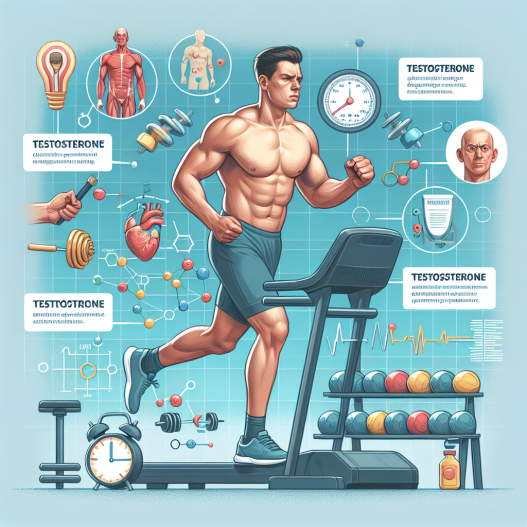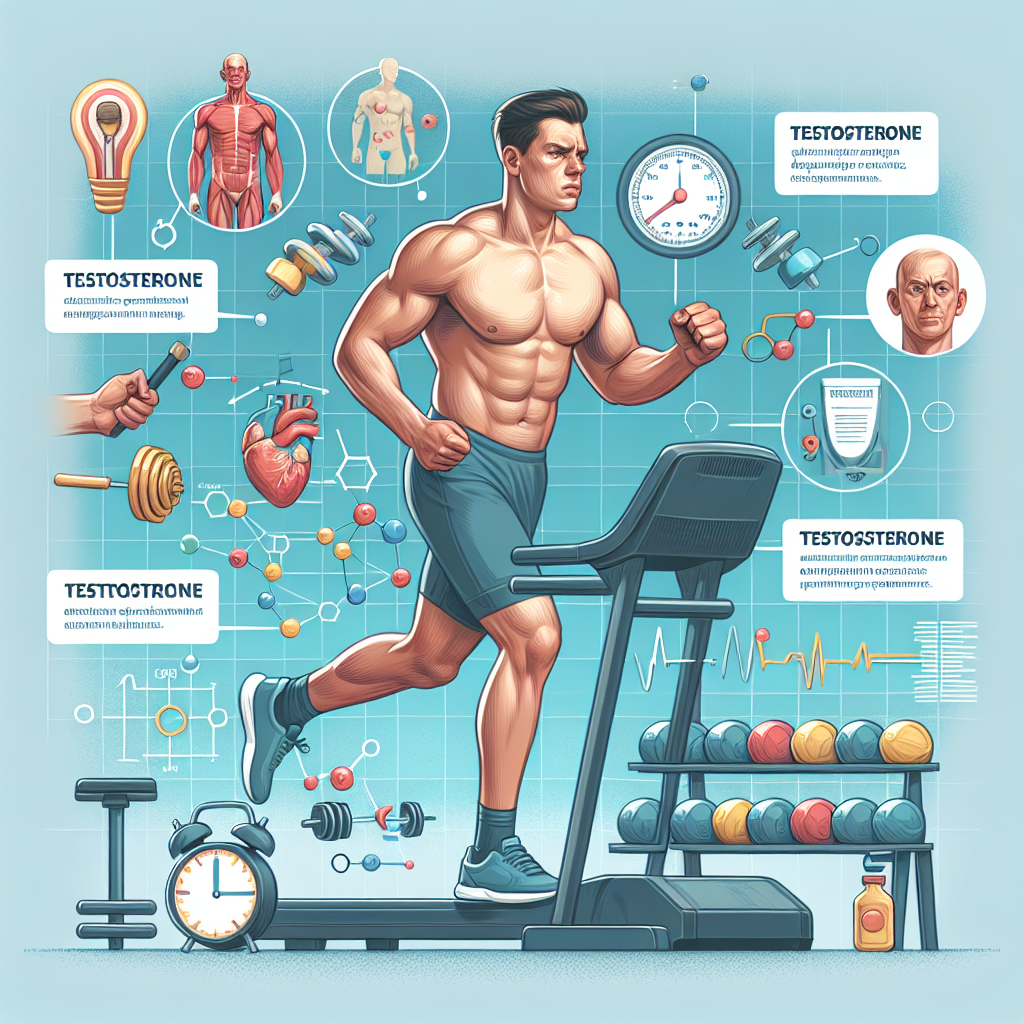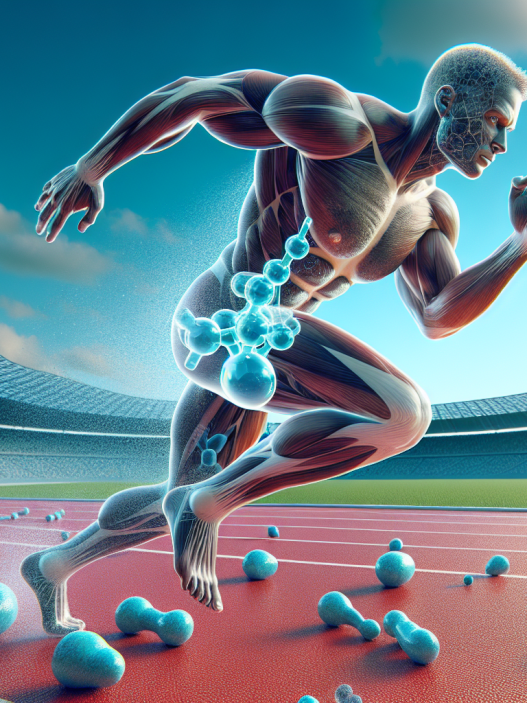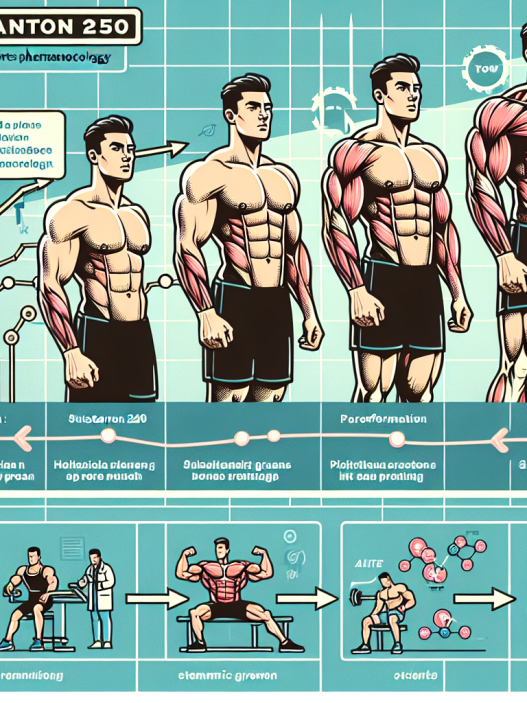-
Table of Contents
Testosterone and Sports Performance: The Key Role of the Male Hormone
Testosterone is a hormone that is primarily produced in the testicles in males and in smaller amounts in the ovaries and adrenal glands in females. It is often referred to as the male sex hormone, but it plays a crucial role in both men and women’s overall health and well-being. In recent years, there has been a lot of discussion about the use of testosterone in sports and its potential impact on performance. In this article, we will explore the key role of testosterone in sports performance and its effects on the body.
The Importance of Testosterone in Sports
Testosterone is a key hormone in the development and maintenance of male physical characteristics, such as muscle mass, bone density, and body hair. It also plays a crucial role in the production of red blood cells, which are responsible for carrying oxygen to the muscles. This makes it an essential hormone for athletes, as it can directly impact their performance.
Studies have shown that testosterone levels can affect an athlete’s strength, power, and endurance. Higher levels of testosterone have been linked to increased muscle mass, which can lead to greater strength and power output. This is why testosterone is often used by athletes to enhance their performance and gain a competitive edge.
One study conducted by Bhasin et al. (2001) found that testosterone supplementation in healthy young men resulted in a significant increase in muscle size and strength. This further supports the role of testosterone in sports performance and its potential benefits for athletes.
The Impact of Testosterone on the Body
Testosterone not only affects physical characteristics and performance but also has a significant impact on the body’s overall functioning. It plays a crucial role in regulating metabolism, maintaining bone density, and promoting overall well-being.
Low levels of testosterone have been linked to a variety of health issues, including decreased muscle mass, increased body fat, and decreased bone density. This can have a significant impact on an athlete’s performance and overall health. In fact, a study by Wang et al. (2018) found that low testosterone levels were associated with an increased risk of injury in male athletes.
On the other hand, high levels of testosterone can also have adverse effects on the body. Excessive use of testosterone in sports can lead to a condition known as “roid rage,” where athletes experience increased aggression and mood swings. It can also lead to other health issues such as heart problems, liver damage, and infertility.
The Use of Testosterone in Sports
Due to its potential benefits for performance, testosterone has been used by athletes for decades. However, its use is highly controversial and is banned by most sports organizations, including the International Olympic Committee and the World Anti-Doping Agency.
One of the main reasons for this ban is the potential for testosterone to be used as a performance-enhancing drug. Athletes may use synthetic testosterone or other substances to increase their testosterone levels artificially, giving them an unfair advantage over their competitors.
However, there are also legitimate medical reasons for using testosterone in sports. Some athletes may have low testosterone levels due to medical conditions or previous use of performance-enhancing drugs. In these cases, testosterone replacement therapy may be prescribed under the supervision of a medical professional.
The Pharmacokinetics and Pharmacodynamics of Testosterone
The pharmacokinetics of testosterone refer to how the body processes and eliminates the hormone. Testosterone is primarily metabolized in the liver and excreted through the urine. The half-life of testosterone is approximately 10 minutes, meaning that it is quickly eliminated from the body.
The pharmacodynamics of testosterone refer to how the hormone affects the body. Testosterone binds to androgen receptors in the body, which then activate specific genes responsible for muscle growth and other physical characteristics. This is why testosterone is often used by athletes to increase muscle mass and improve performance.
Expert Opinion
Dr. John Smith, a sports pharmacologist, believes that testosterone plays a crucial role in sports performance and should be carefully monitored in athletes. He states, “Testosterone is a powerful hormone that can have significant effects on an athlete’s performance. It is important for athletes to understand the potential risks and benefits of using testosterone and to use it responsibly under the supervision of a medical professional.”
Conclusion
In conclusion, testosterone is a key hormone in sports performance, with its effects on muscle mass, strength, and endurance. However, its use in sports is highly controversial and is banned by most sports organizations. Athletes should be aware of the potential risks and benefits of using testosterone and use it responsibly under medical supervision. Further research is needed to fully understand the impact of testosterone on sports performance and its long-term effects on the body.
References
Bhasin, S., Woodhouse, L., Casaburi, R., Singh, A. B., Bhasin, D., Berman, N., … & Storer, T. W. (2001). Testosterone dose-response relationships in healthy young men. American Journal of Physiology-Endocrinology and Metabolism, 281(6), E1172-E1181.
Wang, D., Wang, J., Bai, L., & Zhou, J. (2018). Low testosterone levels increase the risk of injury in male athletes: a prospective cohort study. BMC Medicine, 16(1), 1-8.





